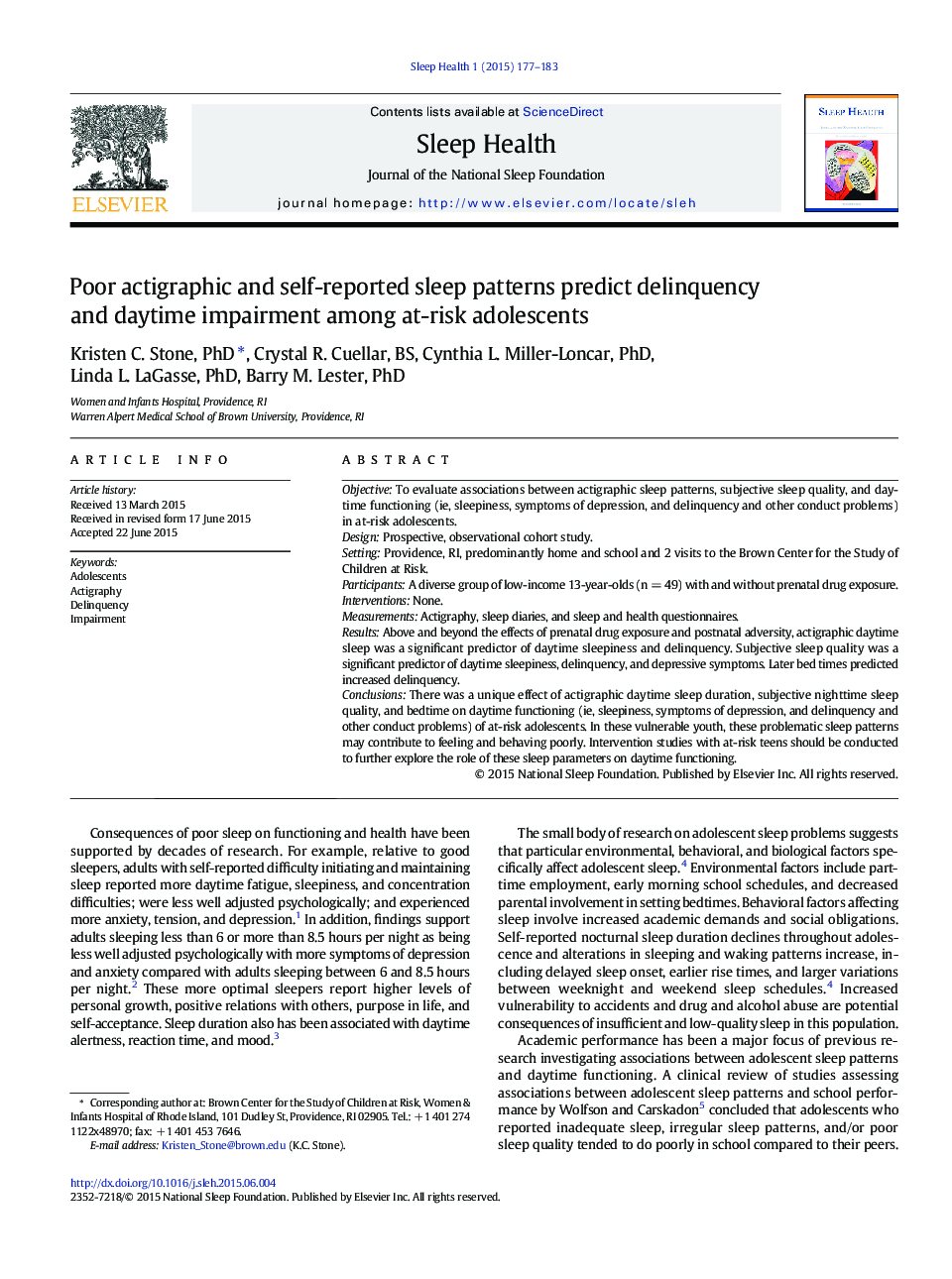| Article ID | Journal | Published Year | Pages | File Type |
|---|---|---|---|---|
| 916267 | Sleep Health | 2015 | 7 Pages |
ObjectiveTo evaluate associations between actigraphic sleep patterns, subjective sleep quality, and daytime functioning (ie, sleepiness, symptoms of depression, and delinquency and other conduct problems) in at-risk adolescents.DesignProspective, observational cohort study.SettingProvidence, RI, predominantly home and school and 2 visits to the Brown Center for the Study of Children at Risk.ParticipantsA diverse group of low-income 13-year-olds (n = 49) with and without prenatal drug exposure.InterventionsNone.MeasurementsActigraphy, sleep diaries, and sleep and health questionnaires.ResultsAbove and beyond the effects of prenatal drug exposure and postnatal adversity, actigraphic daytime sleep was a significant predictor of daytime sleepiness and delinquency. Subjective sleep quality was a significant predictor of daytime sleepiness, delinquency, and depressive symptoms. Later bed times predicted increased delinquency.ConclusionsThere was a unique effect of actigraphic daytime sleep duration, subjective nighttime sleep quality, and bedtime on daytime functioning (ie, sleepiness, symptoms of depression, and delinquency and other conduct problems) of at-risk adolescents. In these vulnerable youth, these problematic sleep patterns may contribute to feeling and behaving poorly. Intervention studies with at-risk teens should be conducted to further explore the role of these sleep parameters on daytime functioning.
